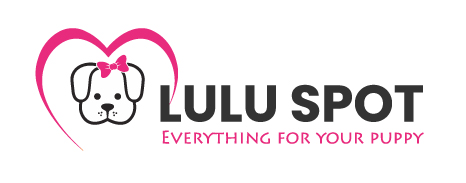Bringing a puppy home is exciting, but it also comes with big responsibilities especially when it comes to nutrition. Puppies grow fast, and the food you choose plays a crucial role in their bone development, immunity, and overall health. One of the most common questions new pet parents ask is: “Should I feed my puppy wet food or dry food?”
Now, let’s break it down and explore some of the best puppy food choices from LuluSpot that are available to support healthy growth and development.”

Why Nutrition Matters Most in Puppyhood
Puppies require:
- High-quality protein for muscle development.
- Balanced calcium & phosphorus for strong bones.
- Omega fatty acids for brain and vision development.
- Digestible carbs and fibers for energy and gut health.
Feeding them adult dog food too early can stunt growth or lead to nutrient imbalances. That’s why it’s vital to pick the right puppy-specific formula.
Benefits of Wet Food for Puppies
Wet food can be especially helpful for young pups who are still adjusting to solid meals.
Why puppies benefit from wet food:
- Soft and easy to chew, even for tiny teeth.
- Moisture-rich—helps keep them hydrated.
- Highly palatable, tempting even the fussiest eaters.
Top Wet Food for Puppies at LuluSpot:
- Royal Canin Canine Health Starter Mousse Mother & Babydog Loaf – Perfect for weaning puppies and nursing mothers. Its mousse texture makes it easy to lick and digest.
- Fromm Chicken Pâté Canned Dog Food – Rich in protein and flavor, ideal as a topper or standalone meal.
- Health Extension Meaty Chicken Canned Food – Grain-free and packed with real chicken for energy and growth.
Benefits of Dry Food for Puppies
Dry food (kibble) is an excellent option once your puppy starts teething and chewing confidently.
Why puppies benefit from dry food:
- Helps strengthen teeth and gums.
- Easier to portion for consistent growth.
- Long shelf-life, making it practical for daily feeding.
- Nutritionally balanced for growth stages.
Top Dry Food for Puppies at LuluSpot:
- Fromm Small Breed Puppy Food – Designed to meet the unique needs of small breed puppies with higher metabolism.
- Fromm Large Breed Puppy Food – Contains balanced calcium for bone and joint health in large breed pups.
- Pro Plan Chicken & Rice Large Breed Puppy – High-protein formula with DHA for brain development.
Can Puppies Eat a Mix of Wet and Dry Food?
Yes! In fact, combining both is one of the best feeding methods for growing dogs. Mixing offers:
- Extra flavor to encourage eating.
- Hydration from wet food + dental benefits of kibble.
- Balanced nutrition while keeping meals exciting.
For example, you can feed kibble as the base and add a spoonful of Fromm Chicken Pâté as a topper.
Puppy Feeding Tips
- Feed 3–4 small meals daily instead of one large meal.
- Always provide fresh water.
- Avoid feeding human foods like chocolate, onions, or grapes they’re toxic!
- Stick to a consistent brand and formula to avoid stomach upset.
Final Thoughts
Both wet and dry food have unique benefits for puppies. Wet food is gentle and hydrating, while dry food is nutritionally balanced and practical. The best choice often comes down to your puppy’s size, breed, and personal preference but often, a mix of both works best.
Ready to give your puppy the best start in life? Explore LuluSpot’s premium puppy food collection today and find the perfect nutrition for your growing companion.
Frequently Asked Questions (FAQs) About Puppy Food
1. When should I start feeding my puppy solid food?
Puppies usually begin the transition from mother’s milk to solid food around 3–4 weeks of age. By 8 weeks, most puppies should be fully weaned and eating puppy-specific food.
2. How long should my puppy stay on puppy food?
The timeline depends on your dog’s breed:
- Small breeds: until 10–12 months
- Medium breeds: until 12–14 months
- Large breeds: until 15–18 months
- Giant breeds: up to 24 months
3. Is wet or dry food better for puppies?
Both have benefits. Wet food is soft, hydrating, and great for young or picky eaters. Dry food supports dental health and is easy to portion. Many pet parents use a combination of both.
4. How many times a day should I feed my puppy?
- Puppies under 6 months: 3–4 small meals daily
- Puppies 6–12 months: 2–3 meals daily
Consistency is key for healthy growth and digestion.
5. Can I give my puppy adult dog food?
Not yet! Adult formulas don’t provide the extra calories, protein, and minerals puppies need for growth. Always feed a puppy-specific formula until your vet confirms it’s time to switch.
6. How do I transition my puppy to adult food later on?
Make the switch gradually over 7–10 days. Start with 25% adult food + 75% puppy food, then slowly increase the adult portion to avoid stomach upset.
